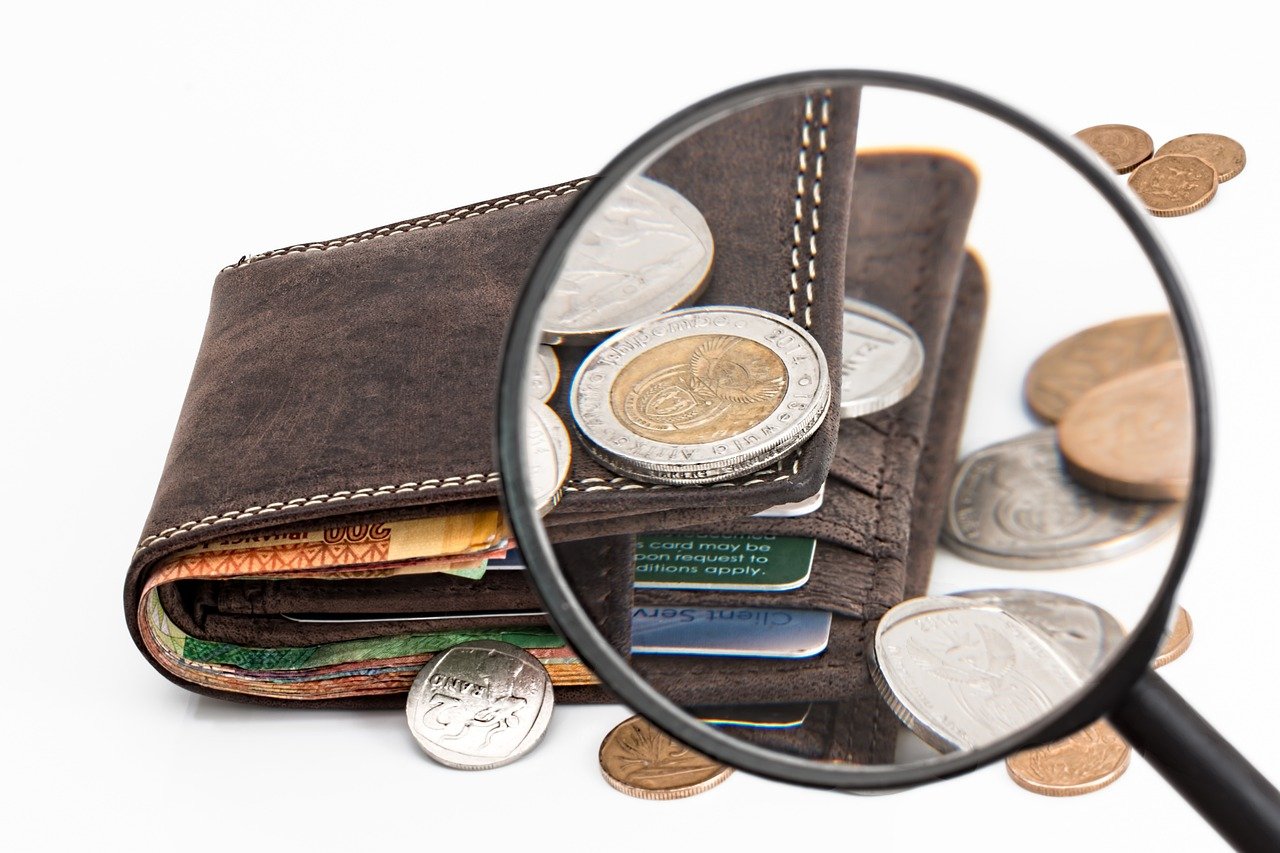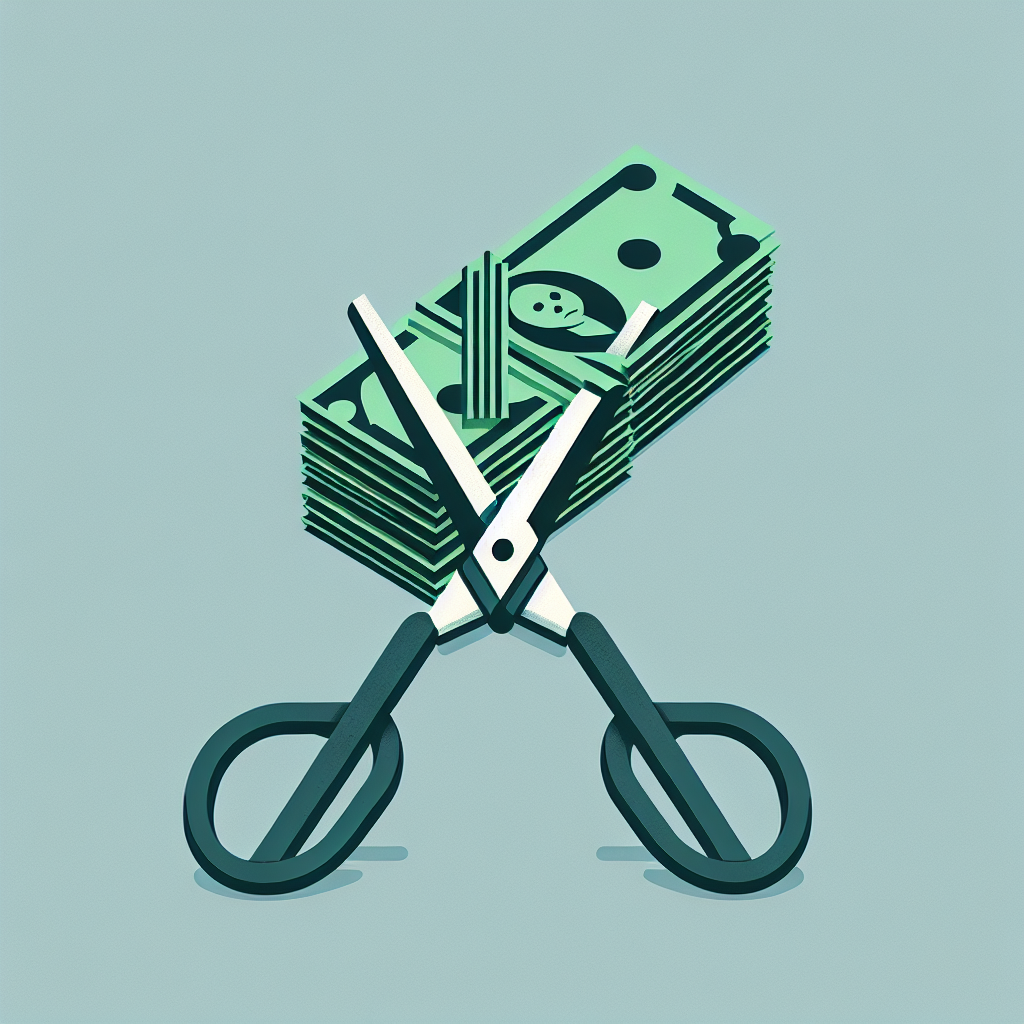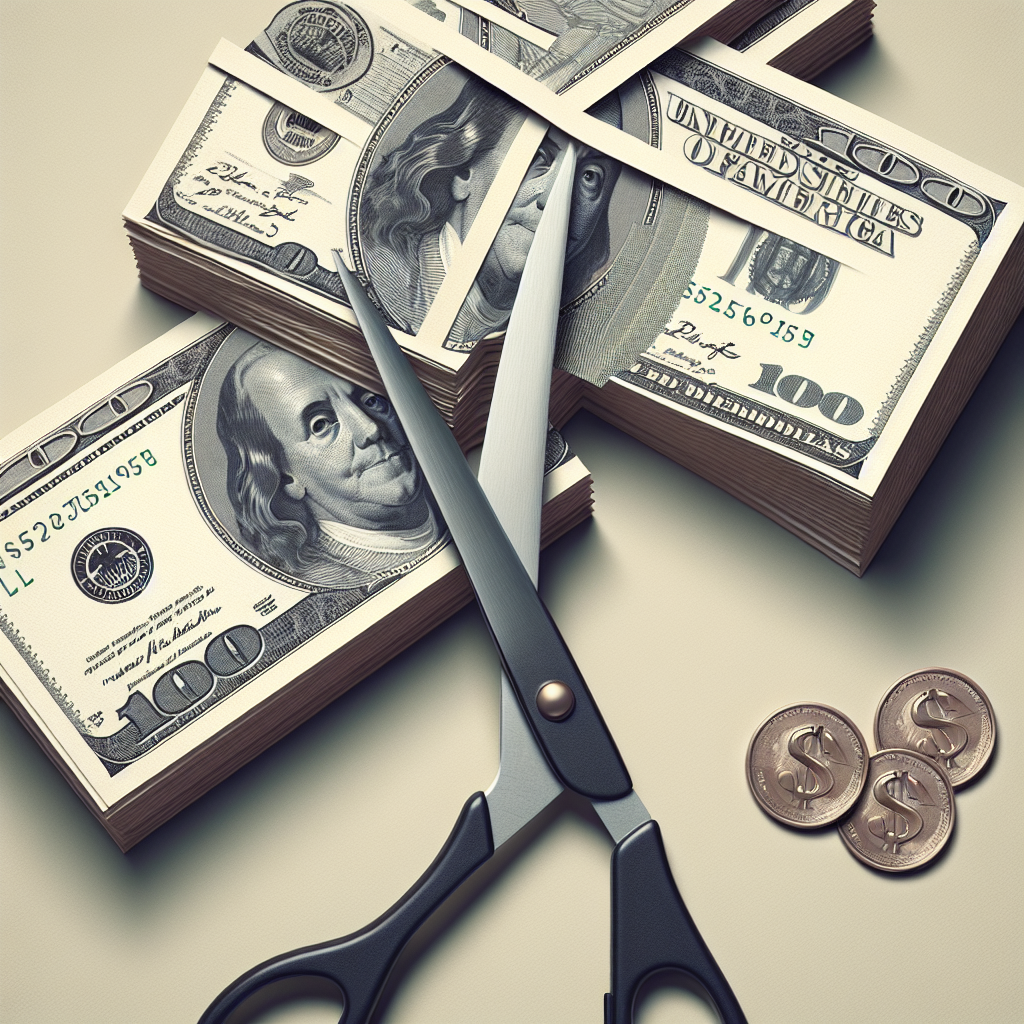In today’s uncertain times, it’s essential to reassess our spending habits and find smart ways to cut or reduce non-essential expenses. By taking a closer look at our budget, we can uncover areas where we might be able to tighten our belts without sacrificing our quality of life. Whether it’s reevaluating subscription services or finding creative ways to save on dining out, there are plenty of practical strategies that can help us make the most of our hard-earned money. So, why not explore some of these savvy tips and start freeing up some extra cash in your budget?

Create a Budget
Creating a budget is the first step towards financial success. By tracking your expenses and identifying non-essential items, you can set a budget for each category to ensure you are not overspending.
Track your expenses
To get a clear picture of where your money is going, start by tracking your expenses. Keep track of every penny you spend, from the smallest coffee purchase to the biggest monthly bill. This will help you identify any areas where you may be overspending.
Identify non-essential expenses
Once you have tracked your expenses, it’s time to identify the non-essential items in your budget. These are the things you can live without or find a more cost-effective alternative. Think about that magazine subscription you rarely read or the daily latte habit that adds up over time.
Set a budget for each category
After identifying non-essential expenses, it’s important to set a budget for each category. Allocate a specific amount of money for groceries, utilities, entertainment, and other essential expenses. By having a budget in place, you can prioritize your spending and avoid unnecessary purchases.
Reduce Housing Costs
Housing costs can be one of the biggest expenses in a budget. Here are some tips to help you reduce these costs:
Consider downsizing or moving to a cheaper location
If your current housing is taking up a large portion of your budget, it may be time to consider downsizing or moving to a more affordable location. Moving to a smaller house or apartment can significantly reduce your housing expenses and free up funds for other areas of your budget.
Negotiate rent or mortgage terms
If moving is not an option, try negotiating with your landlord or mortgage lender for lower rent or mortgage terms. They may be willing to reduce your monthly payment or offer a better deal if you explain your financial situation. It never hurts to ask!
Rent out a spare room
If you have a spare room in your home, consider renting it out to generate some extra income. This can help offset the cost of your rent or mortgage and ease the financial burden. Just make sure to screen potential roommates carefully to ensure a good fit.
Save on Transportation
Transportation costs can also add up quickly. To save on transportation expenses, consider the following tips:
Use public transportation or carpooling
Instead of relying on your car for everyday transportation, consider using public transportation or carpooling with colleagues or friends. Public transportation is often cheaper than driving, and carpooling can help you split the cost of gas and parking.
Switch to a more fuel-efficient vehicle
If you’re in the market for a new car, consider choosing a more fuel-efficient model. A fuel-efficient vehicle can save you a significant amount of money on gas over time, especially if you have a long commute or drive frequently.
Reduce unnecessary trips
Evaluate your daily or weekly trips and see if any can be eliminated or combined. Consolidating errands and planning your outings can help reduce the amount of gas you use and save you money in the long run.
Cut Entertainment Expenses
Entertainment expenses can quickly add up if not managed wisely. To reduce these costs, consider the following strategies:
Cancel unused subscriptions
Take a look at all your subscriptions, including streaming services, gym memberships, and magazine subscriptions. If you’re not using them regularly or they no longer bring you value, consider canceling them. Redirect that money towards more essential expenses or savings.
Explore free or low-cost activities
Entertainment doesn’t have to break the bank. Look for free or low-cost activities in your area, such as community events, parks, and local museums. You can also take advantage of free resources online, like educational podcasts or DIY tutorials.
Host gatherings at home instead of going out
Instead of dining out or going to expensive events, consider hosting gatherings at your home. Organize a movie night with friends, have a potluck dinner, or host a game night. Not only will it be more affordable, but it will also create a warm and welcoming atmosphere.

Minimize Dining Out
Dining out can be a significant drain on your budget, but there are ways to minimize these expenses:
Cook meals at home more often
Start by cooking more meals at home, as eating out can be costly. Plan your meals ahead of time, make a grocery list, and stick to it. With a little practice, you’ll become more comfortable in the kitchen and can even experiment with new recipes.
Plan meals and make grocery lists
Planning your meals and making a grocery list before heading to the store can help you stay on track. By knowing exactly what you need, you’ll avoid impulse purchases and reduce the chances of buying items that go unused.
Batch cook and freeze meals for convenience
Consider batch cooking larger quantities of meals and freezing them for later. This way, you’ll always have a quick and convenient option for those busy days, reducing the temptation to order take-out or dine out.
Reduce Utility Bills
Utility bills, such as electricity and water, can be another area where you can save money. Here are some tips to reduce your utility expenses:
Conserve energy by unplugging devices
Unplug electronics and appliances when they are not in use to reduce “standby power” consumption. Even when turned off, many devices continue to use electricity if they are plugged into an outlet. By unplugging them, you can save energy and lower your utility bills.
Adjust thermostat settings
Be mindful of your thermostat settings, and adjust them to maximize energy efficiency. Lowering your thermostat in the winter and raising it in the summer can help reduce heating and cooling costs. You can also invest in a programmable thermostat for greater control and energy savings.
Switch to energy-efficient appliances
When it’s time to replace your appliances or light bulbs, opt for energy-efficient options. Energy-efficient appliances use less electricity and can significantly reduce your utility bills over time. Switching to LED light bulbs can also save energy and money.

Manage Your Shopping Habits
Shopping can be a tempting expense, but with a few changes to your habits, you can save money:
Shop with a list and avoid impulse purchases
Before going shopping, create a list of the items you genuinely need. Stick to that list and avoid making impulsive purchases. By planning ahead, you prevent unnecessary spending and ensure you only buy what you need.
Compare prices and look for discounts or promotions
Be a savvy shopper by comparing prices before making a purchase. Look for discounts, promotions, or coupons to get the best deals. Many retailers offer price-matching policies, so take advantage of that if you find a lower price elsewhere.
Consider buying secondhand or borrowing items
Before purchasing brand new items, consider if you could buy them secondhand or borrow them from someone you know. Thrift stores, online marketplaces, and community-sharing programs can offer affordable alternatives that still meet your needs.
Cut Cable and Phone Costs
Cable and phone bills can often be expensive, but there are ways to cut these costs:
Switch to streaming services or lower-tier cable packages
Consider switching from traditional cable to streaming services. Streaming platforms offer a wide range of entertainment options at a fraction of the cost of cable. Alternatively, downgrade your cable package to a lower tier that still meets your needs.
Negotiate phone and internet plans
Contact your phone and internet providers to negotiate your plans. They may have better offers or promotions available that can help you save money. By being open to negotiation, you might be able to reduce your monthly bill without sacrificing the service you need.
Consider bundling services for better deals
If you require both cable and internet services, consider bundling them to get a better deal. Many providers offer discounted rates for bundled services, which can save you money in the long run.

Save on Health and Wellness
Healthcare costs can be a significant expense, but there are ways to save:
Review insurance policies and explore alternatives
Review your health insurance policies to ensure you have the coverage you need at the best possible rate. Explore different insurance providers and compare their offerings for potential cost savings. You may find that switching to a different plan or provider can result in significant savings.
Opt for generic medications instead of brand names
When it comes to prescription medications, opt for generic alternatives whenever possible. Generic medications are just as effective as brand-name ones but cost a fraction of the price. Talk to your doctor or pharmacist to explore your options.
Practice preventive healthcare to reduce medical expenses
Taking care of your health through preventive measures is not only good for your well-being but can also save you money in the long run. Regular exercise, a healthy diet, and routine check-ups can help prevent more serious health issues that can be expensive to treat.
Evaluate Subscriptions and Memberships
Subscriptions and memberships can add up and drain your budget. Consider evaluating and cutting back on unnecessary expenses:
Assess the value and frequency of use for each subscription
Take the time to assess the value and frequency of use for each subscription or membership you have. If you find that you are not utilizing them enough or they no longer align with your current interests or goals, it may be time to cut back or cancel them.
Cancel or downgrade subscriptions that are not necessary
After evaluating your subscriptions, cancel or downgrade those that are not necessary or providing enough value. This will not only save you money but can also declutter your life and allow you to focus on the things that truly matter to you.
Look for free alternatives to replace paid memberships
Explore free alternatives to replace paid memberships. For example, instead of paying for a gym membership, consider exercising at home or in community parks. Many cities also offer free or low-cost recreational activities and classes that can provide the same benefits as paid memberships.
By implementing these strategies, you can cut or reduce non-essential expenses and improve your financial well-being. It’s important to remember that every small change can add up to significant savings over time. Stay committed to your budget and remain mindful of your spending to achieve your financial goals. You’ve got this!


